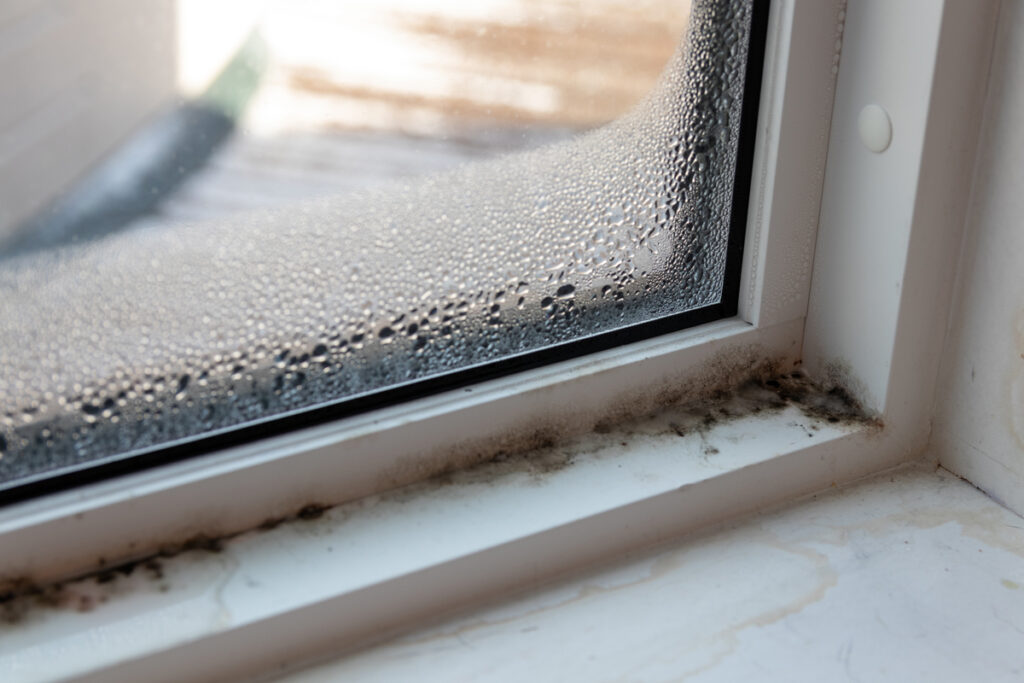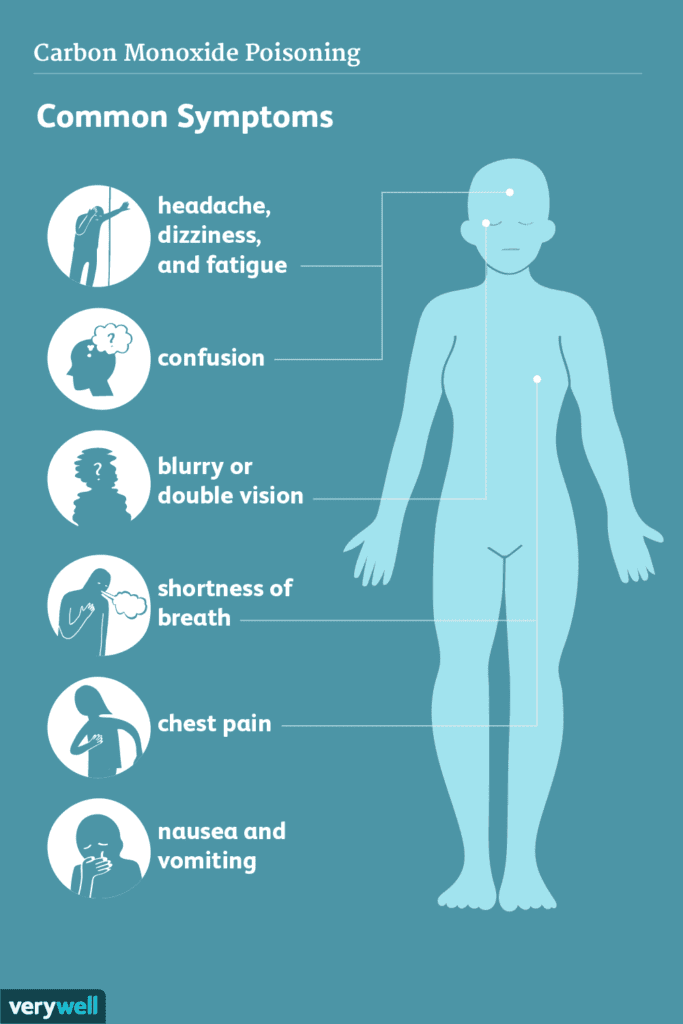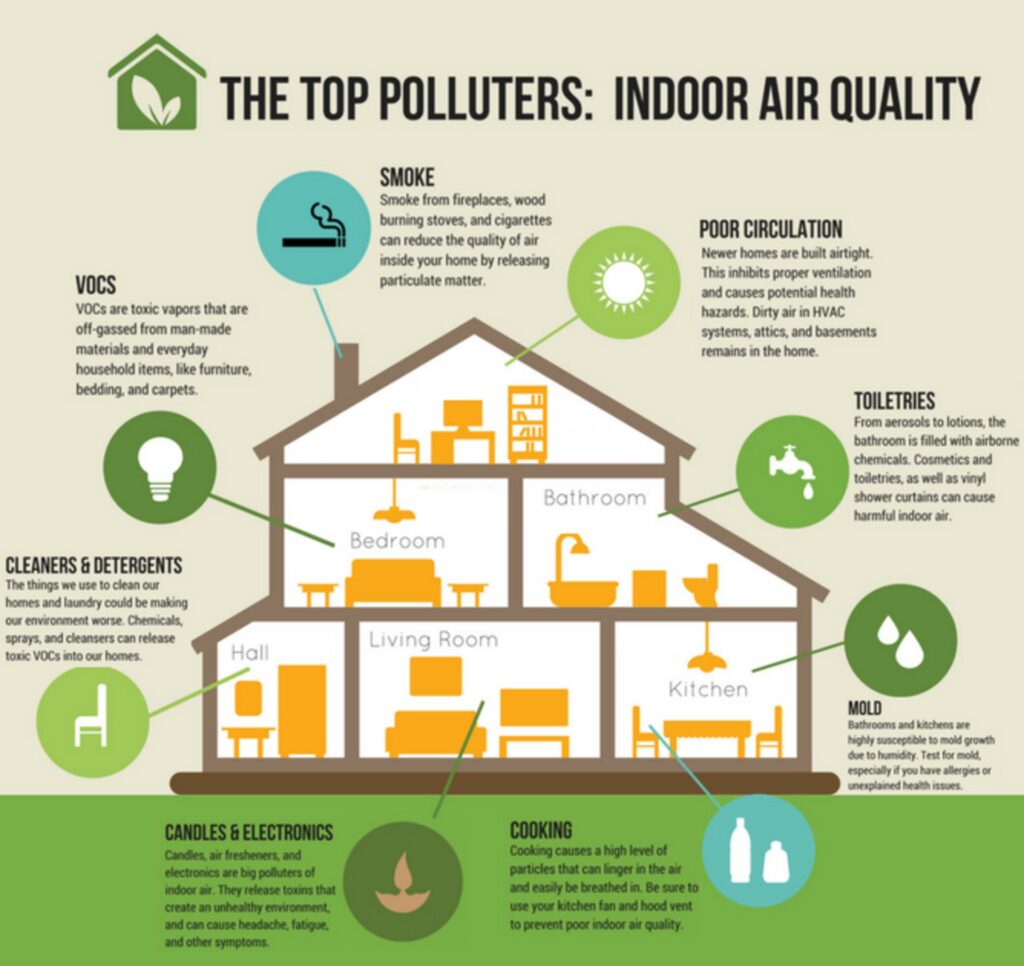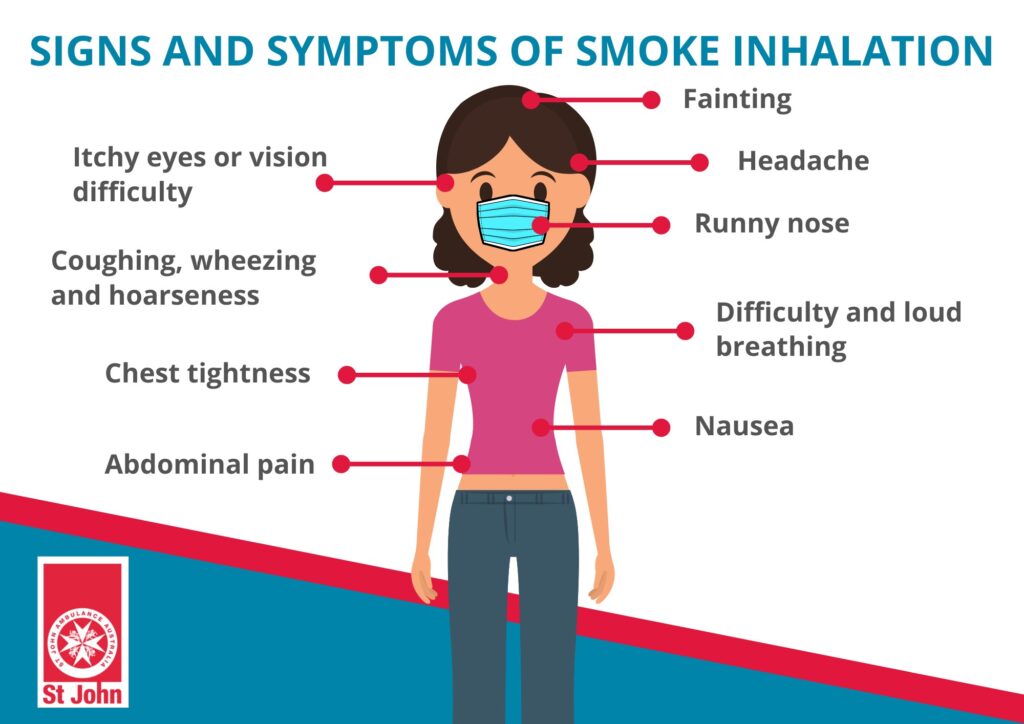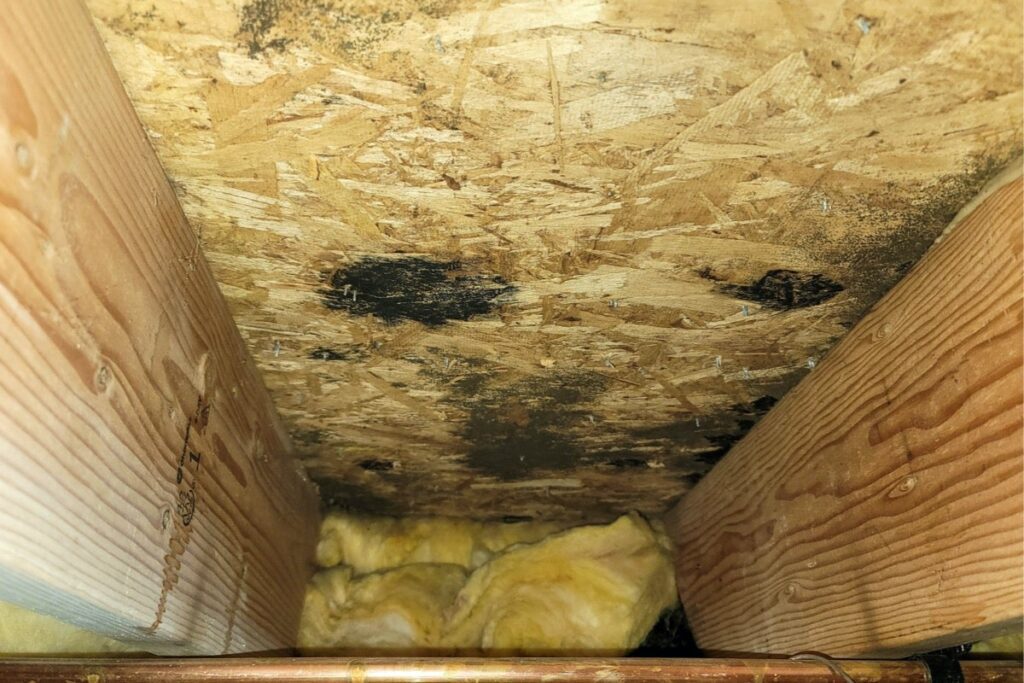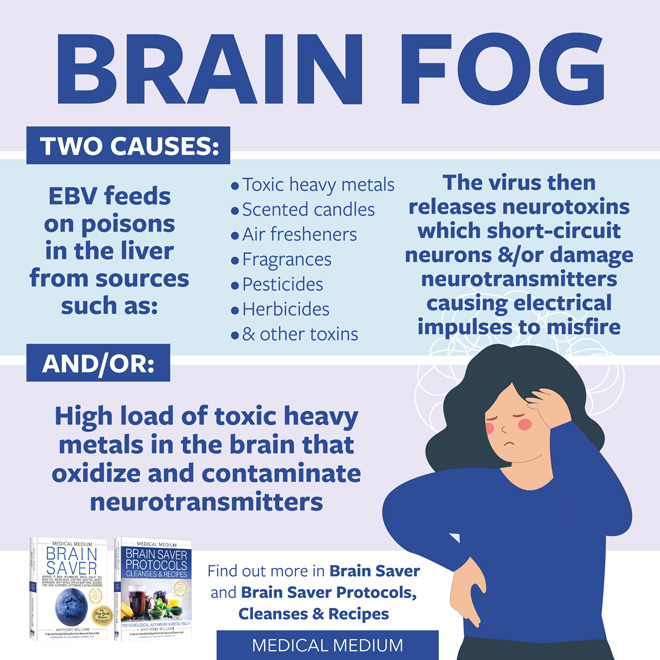Are you concerned about the quality of the air in your home? If so, you may be wondering if humidifiers can help improve the situation. Humidifiers are devices that add moisture to the air and can have several potential benefits for air quality. In this article, we will explore the question of whether humidifiers can help with bad air quality and discuss their potential advantages.
Before we dive into the benefits of humidifiers, it’s important to understand what we mean by bad air quality. Air quality refers to the level of pollutants and other harmful particles in the air we breathe. Poor air quality can have negative effects on our health, including respiratory issues, allergies, and other health concerns.
So, can humidifiers help with bad air quality? Let’s find out!
Key Takeaways:
- Humidifiers can potentially improve bad air quality in your home.
- Maintaining optimal humidity levels is crucial for both your comfort and overall air quality.
- Humidifiers work by adding moisture to the air, which can reduce airborne particles and minimize the presence of allergens.
Understanding Air Quality and its Impact
When it comes to the air you breathe in your home, poor air quality can have a serious impact on your health and well-being. Potential pollutants and allergens in the air can cause a range of health issues, including respiratory problems, allergies, and skin irritation.
Humidifiers can potentially contribute to improving bad air quality by increasing humidity levels, which can have several positive effects on the air you breathe.
One key factor to consider when it comes to air quality is the concentration of airborne particles. These particles can include dust, pollen, and other allergens, as well as pollutants from sources such as cleaning products and smoke. High concentrations of these particles can lead to respiratory problems and other health issues.
Another factor that can impact air quality is the presence of allergens. Allergens can cause a range of symptoms, from sneezing and coughing to more serious respiratory issues. By minimizing allergens in the air, you may be able to alleviate these symptoms and improve your overall health.
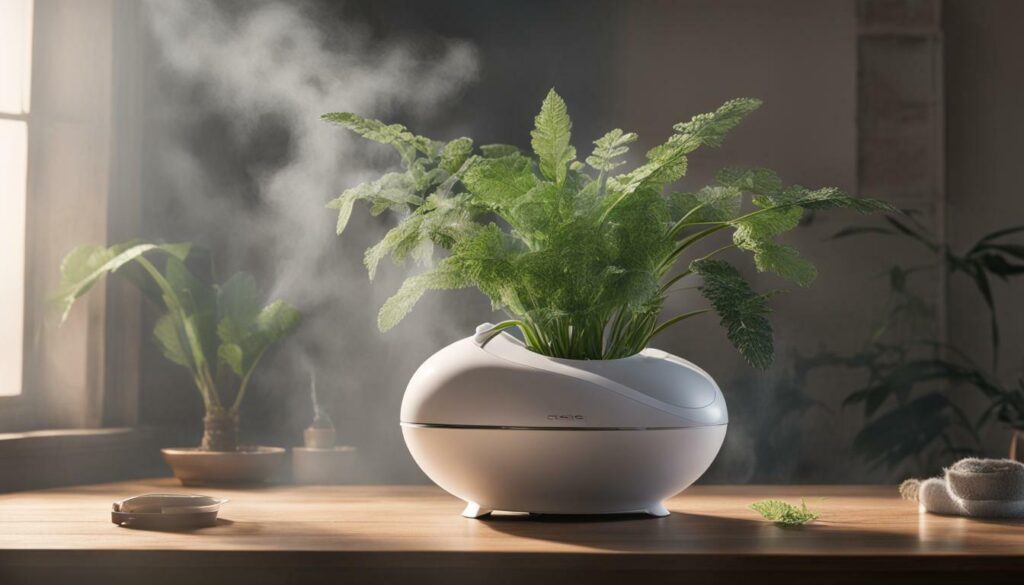

Humidifiers can potentially improve bad air quality by adding moisture to the air, which can reduce the concentration of airborne particles and minimize allergens. Additionally, maintaining optimal humidity levels can help create a more comfortable living environment and potentially reduce the risk of certain health issues.
How Humidifiers Improve Air Quality
Humidifiers work by adding moisture to the air, which can have several positive effects on air quality. Here are a few ways in which humidifiers can potentially contribute to improving bad air quality:
- Reducing airborne particles: By increasing humidity levels, humidifiers can potentially reduce the concentration of airborne particles in the air you breathe. This can include dust, pollen, and other allergens, as well as pollutants from sources such as cleaning products and smoke. By reducing these particles, you may experience fewer respiratory problems and other health issues.
- Minimizing the presence of allergens: Allergens can cause a range of symptoms, from sneezing and coughing to more serious respiratory issues. By minimizing the presence of allergens in the air, humidifiers can help alleviate these symptoms and improve your overall health.
- Creating a more comfortable living environment: Maintaining optimal humidity levels can help create a more comfortable living environment by reducing dryness and potentially reducing the risk of certain health issues, such as dry skin and nasal irritation.
By using a humidifier to improve air quality, you may be able to enjoy a range of health benefits and create a more comfortable living environment. However, it’s important to choose the right humidifier for your needs, follow proper maintenance practices, and consider other factors that may impact air quality.
The Importance of Humidity Levels
When it comes to maintaining good air quality in your home, humidity levels play a crucial role. Dry air can cause a range of issues, from dry skin and respiratory problems to static electricity and damaged wooden furniture. But did you know that high humidity levels can also have a negative impact on air quality?
Excess humidity can create an ideal environment for mold growth, which can release spores that worsen allergies and lead to respiratory issues. It can also promote the growth of dust mites and other allergens.
That’s why it’s important to maintain the right balance of humidity in your home. Generally, the optimal range is between 30-50%. You can use a hygrometer to measure the humidity levels in your home and adjust accordingly.
But can humidifiers effectively improve air quality? The answer is yes. By adding moisture to the air, humidifiers can help reduce the amount of pollutants and allergens present. In fact, maintaining the right humidity levels can even help kill airborne viruses and bacteria.


However, it’s important to choose the right humidifier for your needs. Different types of humidifiers have different features and capabilities. For example, cool mist humidifiers are ideal for hot climates and households with children, while warm mist humidifiers may be a better choice for those with respiratory issues.
By maintaining the right humidity levels with the help of a properly selected humidifier, you can ensure optimal air quality in your home and promote a healthy living environment for you and your family.
The Role of Humidifiers in Reducing Bad Air Quality
If you’re looking for ways to improve the air quality in your home, a humidifier may be a great solution. Humidifiers work by adding moisture to the air, which can have several positive effects on air quality. Here’s how humidifiers can help alleviate bad air quality:
- Reducing airborne particles: Dry air can cause particles like dust, pollen, and pet dander to stay airborne longer, increasing the likelihood of breathing them in. Humidifiers add moisture to the air, causing these particles to become heavier and more likely to settle on surfaces, reducing their presence in the air.
- Minimizing the presence of allergens: Humidifiers can help reduce allergens like mold and mildew, as these thrive in dry environments. By maintaining optimal humidity levels, you can prevent the growth of these allergens and create a more comfortable living environment.
- Creating a more comfortable living environment: Dry air can cause a range of discomforts, from dry skin and eyes to scratchy throats and exacerbation of respiratory issues. By adding moisture to the air, humidifiers can alleviate these symptoms and create a more comfortable living environment overall.
Overall, humidifiers can be an effective tool in reducing bad air quality and improving your indoor air quality. However, it’s important to choose the right type of humidifier for your needs and follow proper maintenance practices for optimal results.
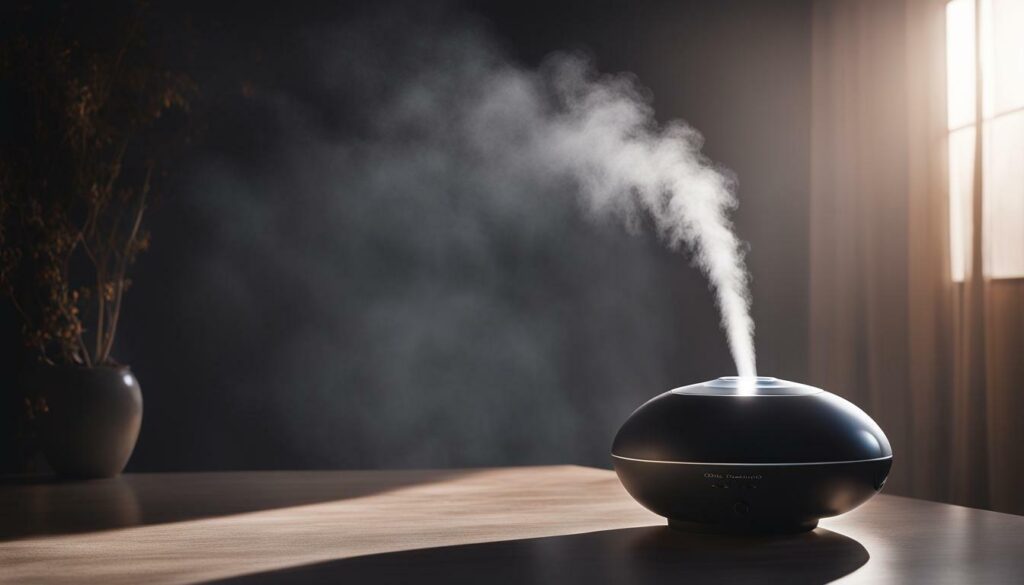

The Science Behind Humidifiers and Air Quality
Humidifiers have been found to effectively alleviate the negative effects of bad air quality. But how exactly do they work to create a healthier environment for you and your loved ones? Understanding the science behind humidifiers and their impact on air quality can help you make an informed decision when selecting the right humidifier for your needs.
When air is excessively dry, the lack of moisture in the air can cause several negative effects. First, it can exacerbate respiratory issues, such as asthma and allergies, making it more difficult to breathe. Second, it can cause dry skin and increase the presence of static electricity. Finally, dry air can also cause damage to household items such as wood furniture and instruments.
Humidifiers work by adding moisture to the air. This helps to improve the overall humidity levels in your home, which can have several positive effects on air quality. Specifically, humidifiers can help reduce airborne particles, such as dust, pollen, and other allergens, by causing them to become heavier and fall to the ground.
In addition to reducing the presence of airborne particles, humidifiers can also help minimize the presence of viruses and bacteria in the air. This is because viruses and bacteria thrive in low-humidity environments, making it more difficult for them to survive in a home with proper humidity levels.
Finally, the use of a humidifier can help alleviate respiratory issues caused by bad air quality. By adding moisture to the air, humidifiers can help alleviate symptoms such as coughing and congestion, making it easier to breathe.
Overall, the science behind humidifiers and their impact on air quality is clear. With proper use and maintenance, humidifiers can effectively alleviate bad air quality by reducing airborne particles and minimizing the presence of viruses and bacteria. This can help create a healthier and more comfortable environment for you and your loved ones.
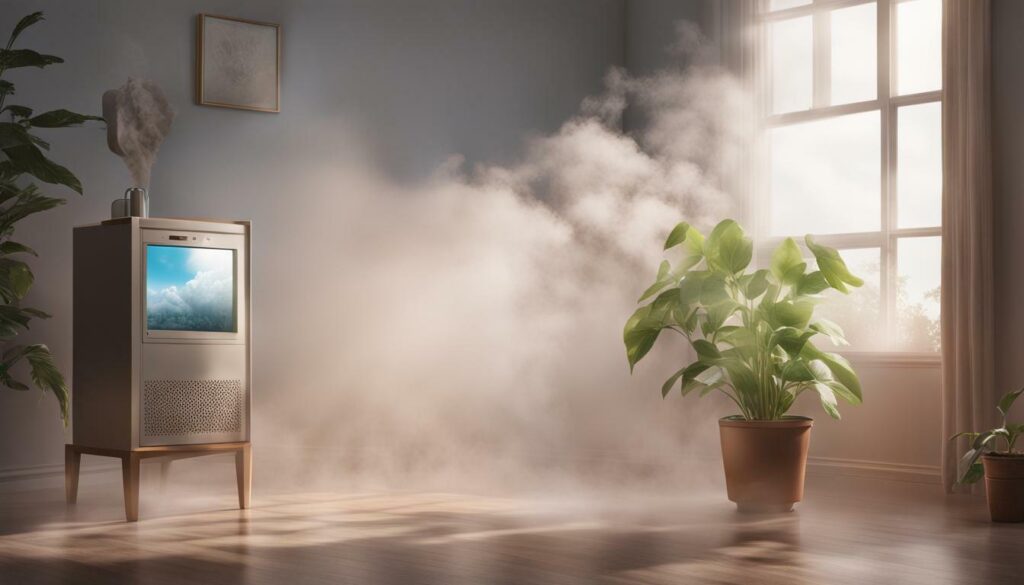

Choosing the Right Humidifier for Your Needs
To alleviate bad air quality, it’s important to choose the right type and size of humidifier for your needs. Consider the size of the room you want to humidify, as well as the specific air quality concerns you have. Some humidifiers are better suited for certain issues than others.
For example, if you are concerned about the presence of bacteria and viruses in the air, consider a humidifier with UV technology, which can kill these germs. If you suffer from allergies, look for a humidifier with a built-in air purifier or a HEPA filter, which can remove allergens from the air. Ultrasonic humidifiers are also a popular option, as they use high-frequency vibrations to create a fine mist that can quickly add moisture to the air.
When choosing a humidifier, pay attention to its capacity and the size of the room it can effectively humidify. A small humidifier may be suitable for a personal workspace, while a larger unit may be needed for a living room or bedroom. As a general rule, aim for a humidity level between 30 and 50 percent for optimal air quality.
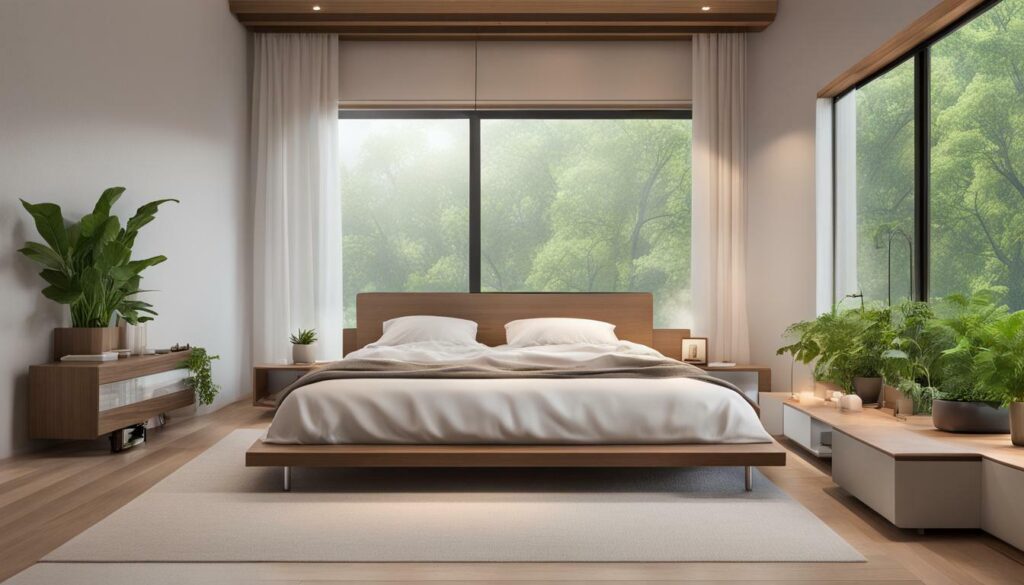

It’s also important to consider the maintenance requirements of the humidifier you choose. Some units require more frequent cleaning than others, and failure to maintain the humidifier properly can lead to mold or bacteria growth. Follow the manufacturer’s instructions for cleaning and replacing filters, and empty and refill the water tank daily to prevent the buildup of mineral deposits.
Overall, finding the right humidifier for your needs can be an effective way to alleviate bad air quality and promote better breathing. By taking the time to choose a suitable unit and following proper maintenance practices, you can enjoy the benefits of improved air quality in your home.
Maintenance and Best Practices for Optimal Air Quality
Humidifiers can be valuable tools in improving air quality, but proper maintenance and best practices are essential to ensure optimal results. Here are some tips to keep in mind:
- Always use clean, distilled water when filling your humidifier.
- Clean your humidifier regularly according to the manufacturer’s instructions. This will help prevent the growth of mold and bacteria.
- Change the water in your humidifier daily to reduce the risk of bacterial growth.
- Keep your humidifier out of direct sunlight to prevent the growth of algae.
- Monitor humidity levels with a hygrometer and adjust your humidifier accordingly to maintain optimal levels.
By following these simple maintenance practices, you can maximize the effectiveness of your humidifier in improving air quality. In addition to these practices, there are other measures you can take to further enhance the air quality in your home, such as regular cleaning, using air purifiers, and avoiding smoking indoors.
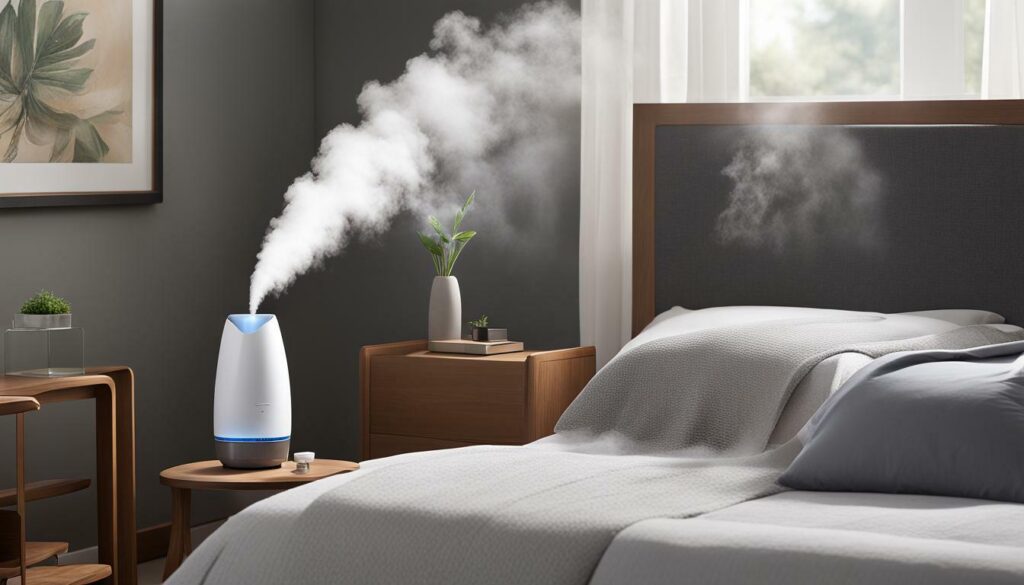

With proper maintenance and best practices, humidifiers can help improve air quality in your home. However, it’s important to remember that humidifiers are not a cure-all for bad air quality. They should be used in conjunction with other measures and considerations to ensure optimal results.
Potential Risks and Considerations
While humidifiers can be effective in improving air quality, it’s important to be aware of potential risks and considerations. One risk is that a poorly maintained humidifier can become a breeding ground for mold and bacteria, which can then be dispersed into the air, worsening air quality rather than improving it. To minimize this risk, it’s important to regularly clean and disinfect your humidifier according to the manufacturer’s instructions.
Another consideration is the type of humidifier you choose. Cool mist humidifiers, for example, can potentially disperse minerals and microorganisms into the air, which may exacerbate respiratory issues for some individuals. In contrast, warm mist humidifiers boil water before dispersing it as steam, which can effectively kill bacteria and other contaminants. Ultimately, it’s important to choose the type of humidifier that is best suited for your individual air quality concerns and preferences.
Additionally, it’s important to monitor humidity levels in your home to prevent over-humidification. Overly humid environments can promote the growth of mold and bacteria, as well as create a breeding ground for dust mites. Maintaining the right humidity levels can help alleviate these concerns and promote overall air quality.
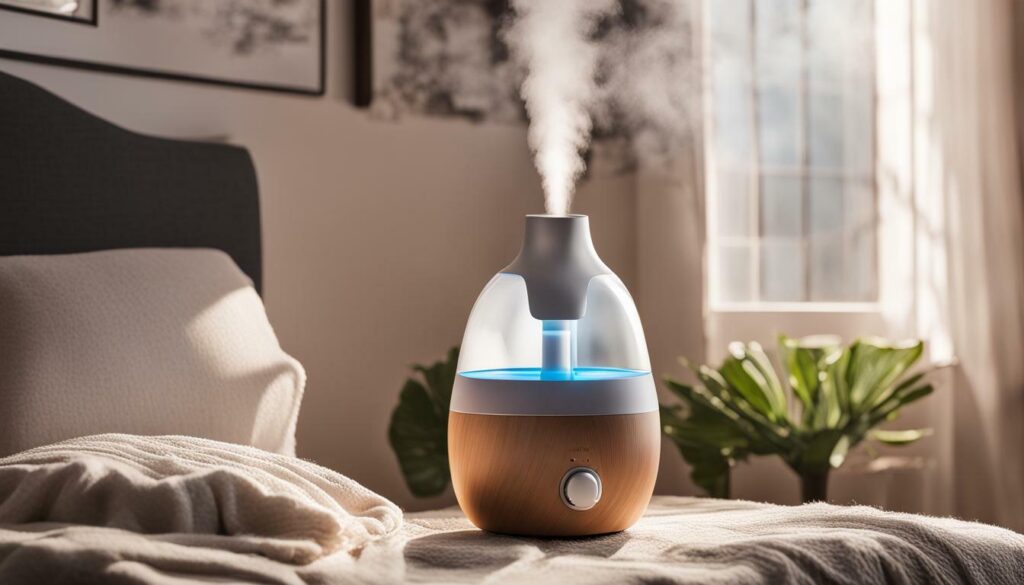

By being aware of these potential risks and considerations, you can effectively use humidifiers to improve bad air quality while mitigating any negative impacts.
Humidifiers and Allergies
If you suffer from allergies, you know how miserable the symptoms can be, especially when the air quality in your home is poor. Can humidifiers improve air quality and alleviate your allergy symptoms? The answer is yes!
Humidifiers add moisture to the air, which can help reduce the presence of airborne allergens such as dust mites, pollen, and pet dander. This is because moist air can cause these allergens to clump together and settle, reducing the amount that you breathe in.
In addition, humidifiers can help alleviate dry, itchy eyes and a dry nose, which are common allergy symptoms. By adding moisture to the air, humidifiers can also help to soothe irritated nasal passages and reduce inflammation in the respiratory system, making it easier to breathe.
It’s important to note that humidifiers alone may not be enough to completely eliminate your allergy symptoms. Other measures you can take to improve air quality, such as regular cleaning and vacuuming, using air purifiers, and avoiding allergens when possible, can also be effective in reducing allergy symptoms.
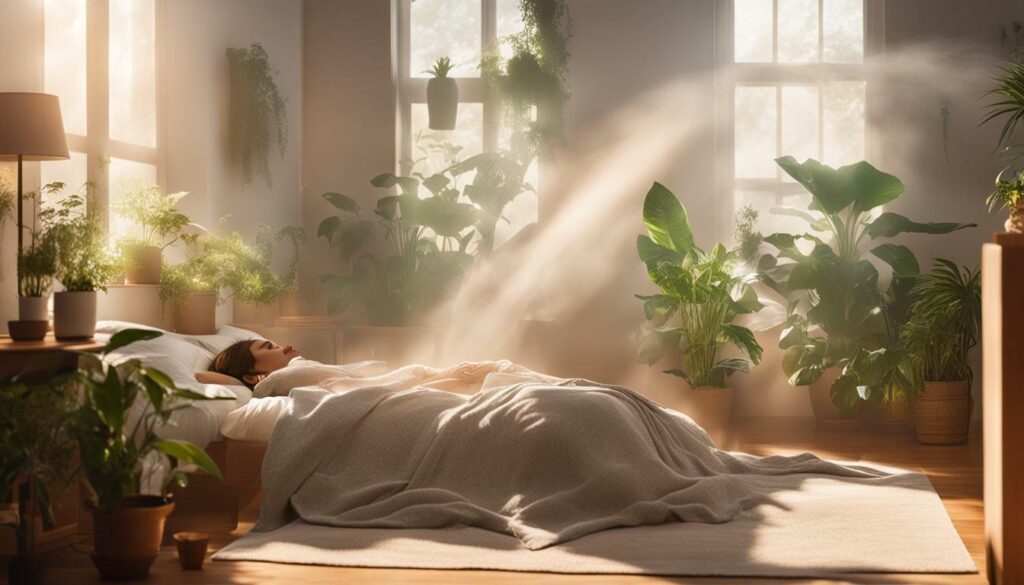

Incorporating the use of a humidifier in your allergy-fighting routine can have a significant impact on your respiratory health and overall comfort. By using a humidifier to improve air quality, you can breathe easier and enjoy a more pleasant living environment.
Humidifiers and Respiratory Health
If you or someone in your household is experiencing respiratory issues due to bad air quality, humidifiers may provide some relief. The added moisture in the air can help soothe the throat and reduce irritation in the nasal passages, making it easier to breathe. Additionally, humidifiers can help break up mucus in the lungs, making it easier to expel.
However, it’s important to note that humidifiers can also create problems for those with certain respiratory conditions. High humidity levels can exacerbate asthma symptoms, and excessive moisture in the air can promote the growth of mold and bacteria, which can be harmful to those with respiratory issues.
To ensure that you are using a humidifier safely and effectively for respiratory health, it’s important to choose the right type of humidifier for your needs and follow proper maintenance practices. Additionally, it’s important to monitor humidity levels in your home and adjust the settings accordingly to avoid creating an environment that is too damp or humid.


By incorporating a humidifier into your air quality improvement efforts, you can potentially alleviate respiratory symptoms and breathe easier. However, it’s important to do so carefully and responsibly to avoid creating additional health problems.
Other Factors Impacting Air Quality
While humidifiers can be helpful in alleviating bad air quality, they are not a cure-all solution. There are other factors that can impact the air you breathe, and it’s important to consider them when trying to create a healthy indoor environment.
One major factor is the presence of indoor pollutants, such as cleaning chemicals, smoke, and pet dander. These pollutants can have a significant impact on air quality, and it’s important to take steps to reduce their presence in your home. One way to do this is to use natural cleaning products and avoid smoking indoors.
Another factor to consider is ventilation. Without proper ventilation, indoor air can become stagnant and pollutants can accumulate. Opening windows and using exhaust fans can help to circulate fresh air and reduce the concentration of pollutants.
Additionally, air filters can be a useful tool in improving air quality. HEPA filters are particularly effective in removing small particles, such as pollen and dust, from the air. Consider using air filters in conjunction with a humidifier to create a comprehensive approach to improving air quality.
Overall, while humidifiers can play a role in alleviating bad air quality, it’s important to also consider other factors that may be impacting the air you breathe. By addressing these factors and using a range of tools and techniques, you can create a healthy, fresh indoor environment for you and your family.
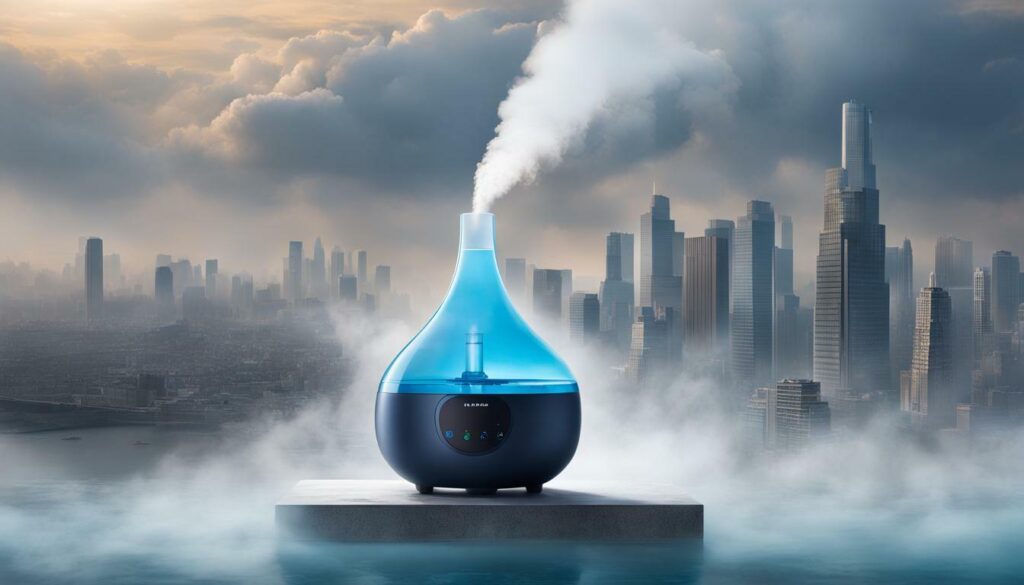

Conclusion
Congratulations! You now have a better understanding of how humidifiers can improve bad air quality in your home.
By maintaining optimal humidity levels, humidifiers can effectively reduce airborne particles and minimize allergens, creating a more comfortable and healthy living environment for you and your family. However, keep in mind that choosing the right humidifier for your needs, following proper maintenance practices, and considering other factors that may impact air quality are all crucial in achieving optimal results.
With a little bit of effort and care, you can enjoy the benefits of fresh, clean air in your home and breathe easy knowing you’ve taken steps to improve your overall well-being.
FAQ
Q: Do humidifiers help with bad air quality?
A: Yes, humidifiers can help improve bad air quality in your home. They work by adding moisture to the air, which can reduce airborne particles and minimize the presence of allergens.
Q: How do humidifiers alleviate bad air quality?
A: Humidifiers alleviate bad air quality by adding moisture to the air. This can help reduce the concentration of airborne pollutants and allergens, creating a more comfortable and healthier living environment.
Q: Can humidifiers improve air quality?
A: Yes, humidifiers can improve air quality by maintaining optimal humidity levels. By adding moisture to the air, humidifiers can help reduce the presence of airborne particles and create a fresher and cleaner indoor environment.
Q: What is the importance of humidity levels for air quality?
A: Maintaining the right humidity levels is crucial for both comfort and air quality. Proper humidity levels can help reduce the presence of pollutants, allergens, and dryness in the air, promoting better overall air quality.
Q: How do humidifiers impact air quality?
A: Humidifiers impact air quality by adding moisture to the air, which can reduce airborne particles, minimize allergens, and create a more comfortable and healthier living environment.
Q: How do I choose the right humidifier for my needs?
A: When choosing a humidifier, consider factors such as the size of your space, the humidity levels you wish to achieve, and any specific air quality concerns you may have. Different types of humidifiers are available, so it’s important to select one that suits your specific needs.
Q: What are some maintenance and best practices for optimal air quality with humidifiers?
A: To ensure optimal air quality with humidifiers, it’s important to regularly clean and maintain the humidifier according to the manufacturer’s instructions. This includes regularly changing the water and cleaning the humidifier to prevent the growth of bacteria or mold. Additionally, monitoring and adjusting humidity levels as needed can help maintain optimal air quality.
Q: Are there any risks or considerations when using humidifiers?
A: While humidifiers offer benefits for air quality, there are some risks and considerations to be aware of. Improper maintenance or excessive humidity levels can lead to the growth of bacteria or mold. It’s important to follow proper cleaning and maintenance practices and monitor humidity levels to avoid any potential issues.
Q: Can humidifiers help with allergies?
A: Yes, humidifiers can help alleviate allergy symptoms by reducing the concentration of airborne allergens. Properly maintaining humidity levels can help minimize allergen presence in the air and provide relief for individuals suffering from allergies.
Q: How do humidifiers impact respiratory health?
A: Humidifiers can potentially improve respiratory health by reducing dryness in the air and minimizing irritants. By maintaining optimal humidity levels, humidifiers can promote better breathing and alleviate respiratory issues caused by bad air quality.
Q: What are other factors that impact air quality?
A: While humidifiers can contribute to improved air quality, it’s important to consider other factors as well. Factors such as proper ventilation, regular cleaning, and the use of air purifiers can all play a role in creating a fresh and healthy indoor environment.


